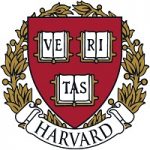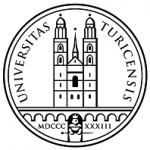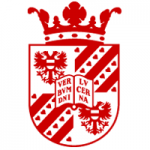项目介绍
A major strength of the graduate program in Germanic Languages and Literatures is its flexibility. While the focus is on German literature and cultural studies, students often include comparative literature, art, philosophy, film studies, musicology, and history of science in their coursework and dissertation. Under the guidance of the Director of Graduate Studies, students develop a plan of study that aims, on the one hand, for broad general knowledge of the field as a whole and, on the other, for special emphases of their own. On the one hand, the A.M. examination and preparation for it are designed to guarantee broad coverage and understanding of the entire history of German literature, thus providing the basis for a career in which graduates are frequently asked to teach courses in specific fields other than their own when their colleagues are on leave. Dissertation topics, on the other hand, generally emerge from seminar papers and from preparation for the PhD general examination, which provides expertise in specific periods, genres, and topics. Often, dissertation topics emerge from seminar papers; in addition, preparation for the PhD general exam is specifically geared toward developing expertise in a period and a genre.
Teaching is required for the PhD degree, not only because sound training and practice are essential for a career in higher education, but also because it provides transferable skills in many other careers for which a PhD may be helpful. Graduate students normally begin teaching in their third year of study. During that year, they take a course in foreign language pedagogy with the Director of the Language Program, who also guides them in their teaching. Opportunities are provided to teach elementary and intermediate language classes, where the graduate student is responsible for the entire weekly instruction of a class. Many of our graduate students teach weekly discussion sections of high-enrollment courses, under the direction of the course head, on literature, film, thought, and culture given by members of the department or professors in related departments; in such courses, the graduate student leads a weekly discussion group under the direction of the course head. Graduate students may also participate as teaching fellows in the undergraduate Program in General Education, again as leaders of small-group discussion sections that accompany lectures given by a professor.
The department conducts regular professional development workshops designed to help graduate students prepare to apply for positions, polish their interviewing skills, practice giving a talk in connection with a job application, publish articles, and produce other materials useful in the job search.
Our graduate students organize the GSAS Germanic Forum, which typically hosts presentations by graduate students from other programs, but also occasional thematic workshops. The student-led Germanic Languages and Literatures Schreibwerkstatt provides an opportunity for students to receive feedback from their peers on drafts of dissertation chapters or papers being prepared for submission as articles. The Germanic Languages and Literatures Colloquium is a periodic meeting of graduate students and faculty to discuss a short literary text chosen by graduate students. Furthermore, the students periodically design and organize a conference on a topic of their choice; beyond developing organizational skills, this conference allows our students to engage with graduate students at other universities and to get to know more closely the distinguished scholar who gives the keynote address. The graduate program cooperates with the Humboldt Universität zu Berlin, allowing students from Berlin to conduct research at Harvard and participate all Department events and making research sojourns at Humboldt possible for students from our own program.
The extraordinary resources that Harvard offers scholars in German literary and cultural studies include 1) the Harvard University Library, the largest university library in the world and the fourth-largest library in the world altogether, housing what many consider to be the finest German studies research collection in North America and including Houghton Library, the rare books collection, which includes an extensive collection of medieval manuscripts, not to mention one of the finest examples of the Gutenberg Bible, and the papers of such major German poets as Hofmannsthal, Rilke, Brecht, and Heine; 2) the exceptional Map Collection in Pusey Library; 3) the Harvard Film Archive, whose collection of 35- and 16-millimeter German films, along with videos, press booklets, and photographs, is unique; and 4) last but far from least, the Harvard Art Museums, the largest university art collection in North America, including the Busch-Reisinger Museum, the first and still only comprehensive museum of Germanic art in North America, with an especially strong collection in Medieval art and in late 19th-century to contemporary German and Austrian art.
Admissions Requirements
All prospective students are required to submit with their online application, including the application form, a chronologically gap-free curriculum vitae in tabular form, GRE scores, TOEFL scores for non-native speakers of English, transcripts of all previous post-secondary education, three letters of recommendation pertinent to graduate study in the field, a statement of purpose, and a writing sample of 15-25 pages on a relevant topic, in English or German.
More information is available from the Department of Germanic Languages and Literatures and GSAS Policies.
Theses & Dissertations
Theses & Dissertations for Germanic Languages and Literatures
Germanic Languages and Literatures Faculty
联系方式
电话: (617) 495-1000相关项目推荐
KD博士实时收录全球顶尖院校的博士项目,总有一个项目等着你!






